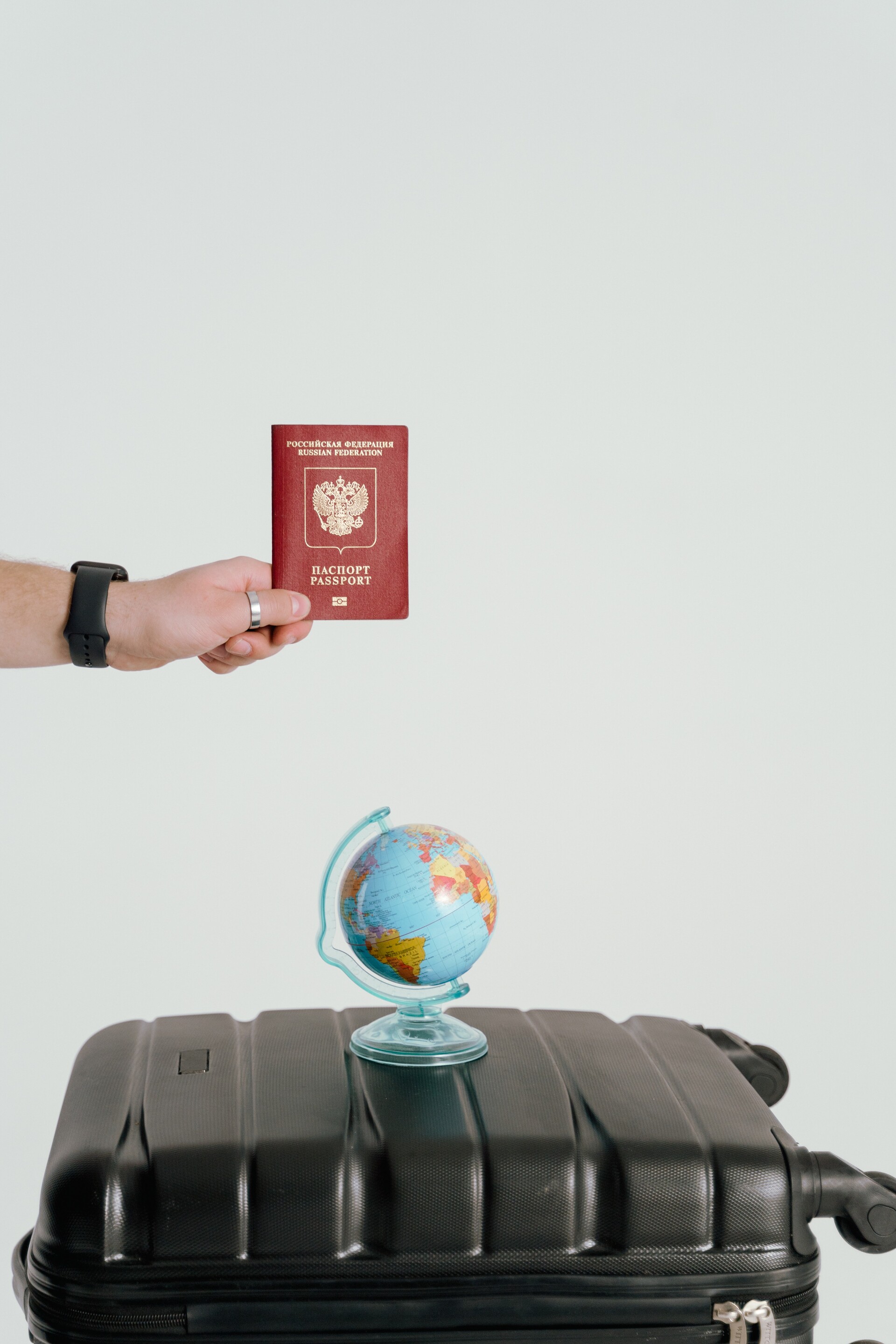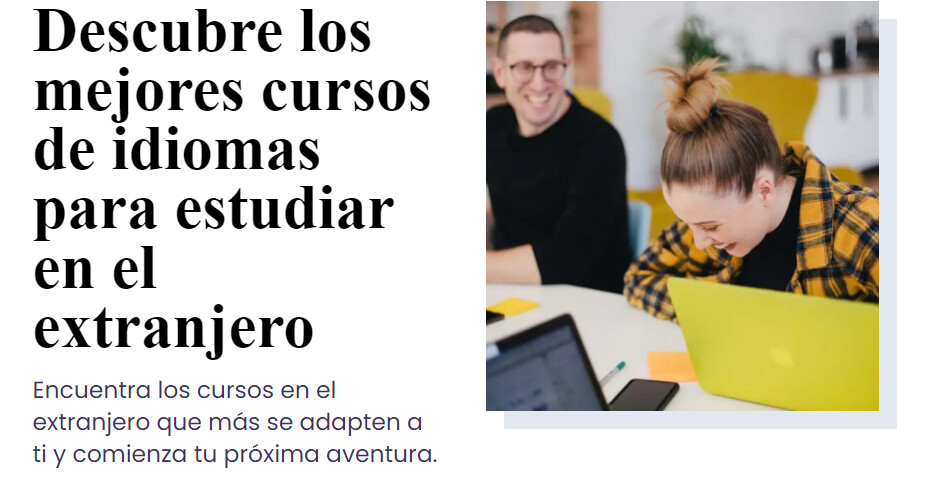Documents you'll need for your Erasmus exchange
Hey everyone!
I've decided today (although it's a bit obvious from the title) to tell you about the documents you'll need for going on your Erasmus exchange, since we all know there's always at least one scatterbrain who forgets something.

Let's start
1. Language Level
For all the Spanish universities which participate in the Erasmus program, you have to have proof of your language skills in the form of a qualification, be it from an official language school or a Cambridge certificate, etc.
Why is this a requirement? Not all destinations who participate in the exchange programme require the same language level: some ask for B1, some for B2 and some even for C1! (like Ireland for example, but it depends on where in Ireland). They don't do this to make your life a misery, but because if you don't have these skills they require, you'll have a rubbish Erasmus exchange because you won't understand anything, and studying in another language is really difficult!
Top tip: Those of you looking to improve your career prospects, don't forget about language skills - what I mean to say is, sign up for a course at the language centre, or get a Cambridge qualification as you'll really benefit from it in the future. Believe me!
In general, to go on an Erasmus exchange, the receiving university usually asks you to have sat and passed the second intermediate test at their official language school (so the fourth level), or that you already have a Cambridge First or TOEFL Certificate.
I had to sit the second intermediate level exam set by the university, since I'd only done the first intermediate exam. The exam was pretty difficult as it involved a lot of grammar (which is the complete opposite to the exams you sit at the official language school, for example) two listening parts and of course a written section. The good thing is that there's no speaking involved (since there are so many people sitting the exam, they don't have time to do this).
2. Choosing your Erasmus destination
Once you've passed this language competence test or certified your knowledge with some kind of qualification, you'll need to choose your destination. How do I go about doing this? You usually get given your options based on your marks. This doesn't mean the marks from the language exam you sat, but instead your average marks on your university course. Another top tip then is to always make the effort to get good marks during your degree, since it'll benefit you later in these kind of situations. For example, I ended up going to Hasselt, but I would have much preferred to go to Great Britain.
Documents you need to prepare
Now that you've chosen your destination, it's time to fill out the mountains of paperwork. Why? They'll give you a folder full of various forms to fill out, dealing with your grant, and including your matriculation certificate and Learning Agreement. All these documents have a submission deadline, so you need to be on the ball with these and start sorting them out now.
Learning Agreement
The most important document is your Learning Agreement, since this is your study agreement form and it's on this form you have to write down the classes you're going to be attending during your Erasmus exchange, which the receiving institution will confirm. You'll also need this to add or change classes if it turns out to be necessary. Changes to your Learning Agreement tend to be very common, so don't worry if you arrive and have to change everything you wrote down before. This could happen because the hours don't suit your schedule, your classes clash, the class is too difficult, etc.
After having completed all this paperwork, you have to wait for the host university to accept you (yep, pretty mad - you have to fill out all those documents without knowing whether they're going to accept you or not). I sent off all my paperwork in February and didn't hear that I'd been accepted by the University of Hassault until July.
Apart from this, all you need to do is register on the university website (which is a bit of a nightmare... I had to send thousands of e-mails to my co-ordinator in Hasselt. To be honest, she was very patient and nice to me, hahaha; if it hadn't been for her, I don't know what would have become of me... )

What documents do I need to bring with me apart from academic ones?
You'll probably be told what to do on this front, but I'll give you some advice anyway just in case. You'll need to bring you DNI (Spanish ID card) with you, or your passport if you're not from a EU member state (the DNI is sufficient ID for Spaniards to travel throughout the EU - British citizens will always need their passport as they have no such equivalent). I still recommend you bring your passport with you, however, since you'll need ID if you lose your DNI. Take it with you, but don't keep them in the same place - that way, if you lose one, you won't necessarily lose the other one too!
The second document you'll need is your European Health Insurance Card. It's free to order online, and will be posted to you within a week. It's very important that you take it with you in case you need to go to the doctor anywhere in the EU (I hope you don't though! ). I'll explain later how going to the doctor doesn't work the same way as it does in Spain, since you have to pay upfront there.
Bring your student card with you, as you'll be able to get discounts with it, and the discounts for Erasmus students are the best!
Bring your driving license if you have one, since you'll need it if you want to rent a car abroad and you won't have to get it officially recognised if you're just visiting the country or studying there. If you end up moving to this country to live, you'll have to get it officially recognised.
Bring passport photos of yourself with you. The university may ask for them and it's always good to have some.
Cards and money
Last but not least, bring your credit card with you so that you can withdraw money abroad. Here's my advice on withdrawing money abroad:
The only card (that I know of) which doesn't charge you for withdrawing money from a cash machine abroad is EVObank, a branch of la Caixa - so if you already have a Caixa credit or debit card, it probably works the same way. This card allows you to withdraw money from any cash machine in the world fee-free three times a month. If you withdraw money more than three times, they only charge you a euro for the transaction. The only downside is that bank transfers from this account carry a charge.
On the other hand, with Santander accounts you always pay a minimum of four euros when making a cash withdrawal, but online transfers are free to make.
Another important point regarding credit and debit cards is that you should make sure you have internet banking set up so you can see your account balance online and so you can order things online, book flights, reserve hotel rooms, etc.
University card
You already know (I've written about it in other entries) that when you arrive in your host country, the first thing you need to do is get a university student card (so that you can get student discounts) and the 'Go Pass' if you're in Belgium.
Ahhh, I almost forgot! Take a copy of your savings book, your IBAN and BIC number with you. You never use these things in Spain, but you'll need them abroad. Another thing I forgot about was that before you go on your Erasmus exchange, you're required to take out repatriation insurance, so take a copy of these insurance documents with you just in case you end up needing them.

Have a look at the Erasmusu Education courses in case you have to go abroad and want to arrive prepared.
Good luck!
Photo gallery
Content available in other languages
- Español: Documentos necesarios para tu Erasmus
- Français: Les documents dont tu auras besoin pour ton Erasmus
- Italiano: Documenti per l'Erasmus
- Português: Documentos necessários para o seu Erasmus
Want to have your own Erasmus blog?
If you are experiencing living abroad, you're an avid traveller or want to promote the city where you live... create your own blog and share your adventures!
I want to create my Erasmus blog! →





Comments (0 comments)